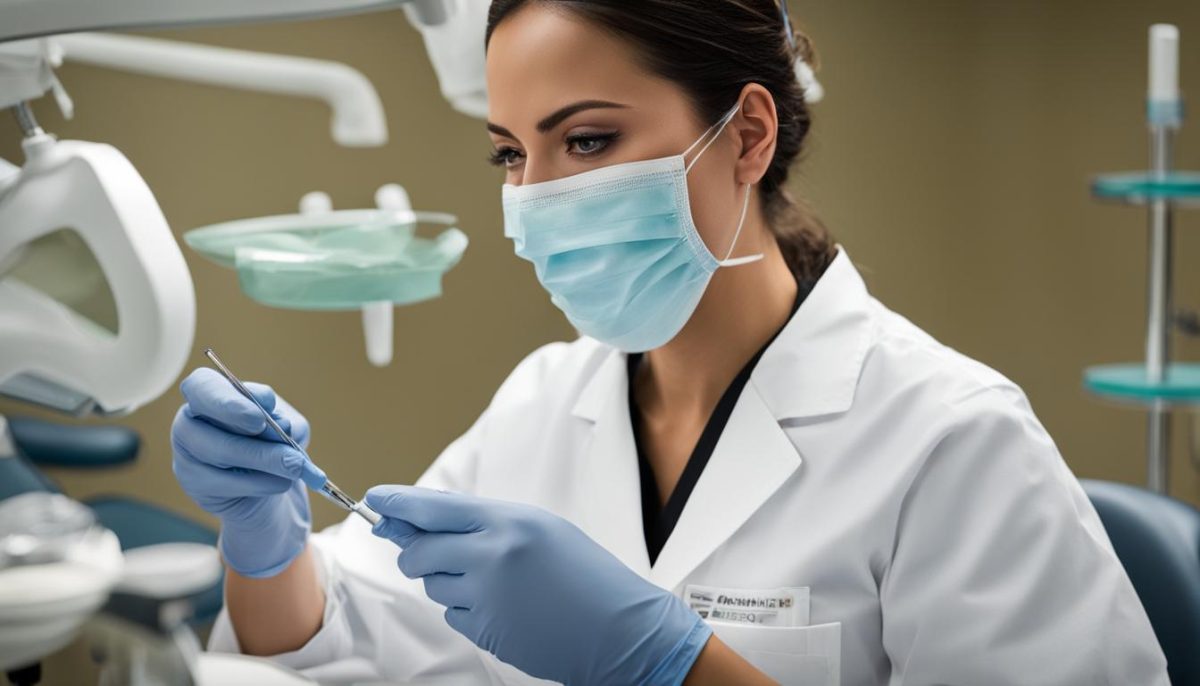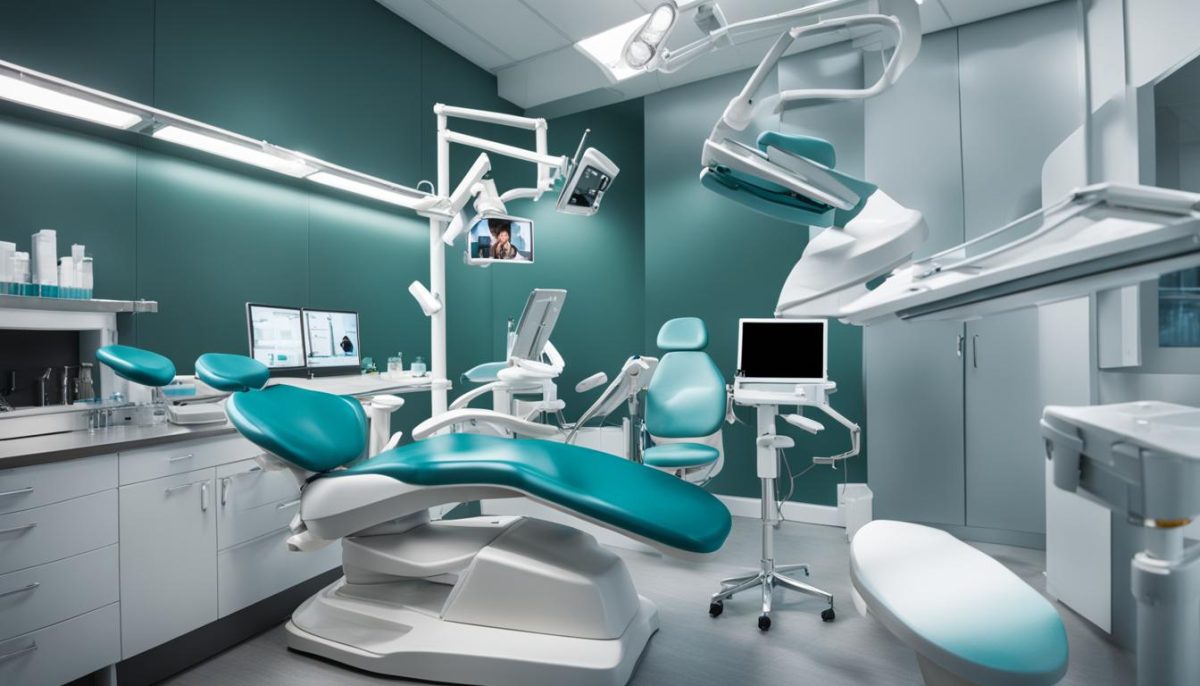News
Types of Dentists in Australia: Which is Ideal for Your Dental Health?
When it comes to taking care of our oral health, it’s important to consult with the right dental professionals who can address our specific needs. Dentistry in Australia has evolved to include a diverse range of dental specialists who specialize in different aspects of oral health. Understanding the different types of dentists and their areas of expertise can help you make an informed decision about the best dental professional for your needs.
At [Company Name], we believe in the importance of dental health and providing you with accurate information to make the best choices for your oral care. In this article, we will explore the various types of dentists in Australia, from dental specialists to dental assistants, and help you determine which expert is most suitable for you.
Key Takeaways:
- Understanding the different types of dentists in Australia is crucial for selecting the right dental professional for your needs.
- Types of dentists include dental specialists, dental assistants, dental technicians, dental hygienists, oral health therapists, and dental prosthetists.
- Dentists focus on prevention, diagnosis, and treatment of conditions affecting the teeth, gums, mouth, and jaw.
- Dental assistants provide support to dentists during dental treatments.
- Dental technicians create dental devices based on impressions of the mouth and teeth.
What Does a Dentist Do?
Dentists play a crucial role in ensuring the overall health of your teeth, gums, mouth, and jaw. They are highly trained dental health experts who focus on the prevention, diagnosis, and treatment of various oral conditions. Let’s explore the range of services that dentists provide to help maintain your dental well-being.
Prevention and Diagnosis
One of the primary responsibilities of dentists is to prevent dental problems from occurring in the first place. They emphasize the importance of regular dental check-ups and cleanings to detect early signs of dental issues, such as cavities, gum disease, and oral infections. Through comprehensive examinations and X-rays, dentists identify and diagnose dental problems promptly.
Treatment and Restoration
Dentists are skilled in performing a wide range of restorative and cosmetic dental procedures. They use advanced techniques and technologies to restore the functionality and aesthetics of your teeth. Some common treatments include:
- Placement of crowns, veneers, and bridges to repair damaged or missing teeth
- Root canal treatments to save infected teeth from extraction
- Implant treatments to replace missing teeth and restore natural function
- Extractions of severely damaged or impacted teeth
Dentists also provide maintenance and replacement services for missing dentures, ensuring that you can continue to eat, speak, and smile with confidence.
“Regular dental check-ups and cleanings are essential for preventing dental problems and maintaining a healthy smile.”
Dentists also educate patients on oral hygiene practices, such as brushing and flossing techniques, to prevent tooth decay and gum disease. They offer personalized advice and recommendations to help you maintain optimal oral health.
Through their expertise and in-depth knowledge, dentists not only address existing dental issues but also help prevent future problems from arising. Maintaining regular visits to the dentist is essential for your overall oral health and well-being.
What does a dental assistant do?
Dental assistants play a critical role in supporting dental treatments and ensuring smooth operations in the dental clinic. They are essential members of the dental team, providing valuable assistance to both dentists and patients throughout the dental care process.
As a dental assistant, their responsibilities encompass a wide range of tasks, from administrative duties to clinical support. At the reception, they greet patients, schedule appointments, and handle payments and receipts. This ensures that patients receive the necessary care and have a seamless experience from the moment they enter the clinic.
In addition to their administrative role, dental assistants also take on important clinical tasks. They work closely with dentists chairside, providing vital assistance during procedures. This involves sterilizing instruments, preparing the treatment area, and assisting with dental treatments. They may also take x-rays, impressions, and perform other diagnostic procedures under the dentist’s direction.
A dental assistant’s support helps ensure the effectiveness and efficiency of dental treatments. By having the necessary instruments sterilized and ready for use, they save valuable time for both the dentist and the patient. This allows treatments to proceed smoothly and enables the dentist to focus on delivering high-quality care.
Overall, dental assistants are integral to the dental team, providing essential support to dentists and ensuring a comfortable and efficient dental experience for patients. Their multitasking abilities, attention to detail, and dedication to patient care contribute significantly to the success of dental treatments.
| Dental Assistant Responsibilities | Tasks |
|---|---|
| Reception and Administrative Duties |
|
| Clinical Support |
|
Note: The tasks of a dental assistant may vary depending on the dental practice and the specific requirements of the dentist.

As seen in the responsibilities of a dental assistant, their support is instrumental in ensuring the smooth operation of dental treatments. From managing administrative tasks to providing chairside assistance, dental assistants contribute to the overall success of dental procedures and the satisfaction of patients.
What does a dental technician do?
Dental technicians play a vital role in creating various dental devices that help restore and enhance the functionality and appearance of patients’ teeth. They skillfully use patient impressions to handcraft customized dental appliances that seamlessly blend with their natural smile.
These highly trained professionals work closely with dentists and dental specialists to fabricate a wide range of dental devices, including:
- Veneers: Thin shells of porcelain or composite resin that are bonded to the front surface of the teeth, improving their color, shape, and alignment.
- Crowns: Dental caps that encase damaged or decayed teeth, providing protection and restoring strength and aesthetics.
- Bridges: Fixed dental prosthetics that replace missing teeth by anchoring to adjacent teeth, restoring functionality and enhancing overall oral health.
- Dentures: Removable appliances that replace all or some missing teeth, improving speech, chewing abilities, and smile aesthetics.
- Splints: Custom-made devices that help alleviate symptoms of teeth grinding or temporomandibular joint (TMJ) disorders.
- Braces: Orthodontic appliances designed to gradually realign teeth, correct bite issues, and enhance overall dental harmony.
- Mouthguards: Protective devices that prevent dental injuries during sports activities or teeth grinding.
Dental technicians are not only skilled artisans, but they also possess in-depth knowledge of different dental materials and techniques to ensure optimal functionality and aesthetics of the final dental devices. They meticulously follow dentists’ specifications and utilize their artistic talents to create natural-looking restorations that seamlessly blend with patients’ existing teeth.
These dedicated professionals utilize various tools, equipment, and materials in their work, such as dental waxes, ceramics, metals, and digital design technology. Dental technicians meticulously shape, polish, and finish the dental devices to ensure a perfect fit and superior patient satisfaction.
“As a dental technician, my work is driven by the desire to contribute to the oral health and well-being of patients. It gives me immense satisfaction to see the positive impact that our custom-made dental devices have on improving smiles and boosting confidence.”
The Artistry and Precision of Dental Technicians
Dental technicians combine technical expertise and artistic skills to create lifelike dental restorations that function seamlessly with patients’ natural teeth. Their work requires meticulous attention to detail, precision, and a deep understanding of dental anatomy and aesthetics.
| Dental Technician Skills | Benefits |
|---|---|
| Artistic Creativity | Creating natural-looking restorations that blend seamlessly with patients’ existing teeth. |
| Attention to Detail | Ensuring precise fit and functionality of dental devices for superior patient comfort. |
| Technical Excellence | Utilizing advanced techniques and dental materials to produce high-quality, long-lasting dental restorations. |
Modern dental technology advancements, including computer-aided design and computer-aided manufacturing (CAD/CAM), have further enhanced the precision and efficiency of dental technicians’ work. Through digital workflows, dental technicians can create highly accurate and customized dental devices, reducing turnaround times and improving patient satisfaction.
The dedication and craftsmanship exhibited by dental technicians are integral to the success of restorative and cosmetic dental treatments. Their invaluable contributions enable patients to enjoy beautiful smiles and improved oral health.
What Does a Dental Hygienist Do?
Dental hygienists play a crucial role in maintaining oral health and preventing dental diseases. They work closely with patients, providing advice and instructions to help them maintain optimal oral hygiene.
One of the key responsibilities of dental hygienists is performing regular scale and clean procedures. During these procedures, they carefully remove plaque, tartar, and stains from the teeth, ensuring a clean and healthy smile.
By removing plaque and tartar, dental hygienists help prevent the development of dental diseases such as gum disease. Gum disease, also known as periodontal disease, can lead to serious complications if left untreated, including tooth loss. By diligently cleaning the teeth and gums, dental hygienists play a vital role in preventing gum disease and maintaining oral health.
In addition to scale and clean procedures, dental hygienists assist dentists in determining the best treatment options for patients with gum diseases. They work closely with dentists, conducting thorough assessments of the mouth and gums, and providing valuable insights that aid in the diagnosis and prevention of dental issues.
Dental hygienists are also passionate about educating patients on proper oral hygiene practices. They provide tailored advice and instructions, equipping patients with the knowledge and tools they need to care for their teeth and gums effectively. By promoting good oral hygiene habits, dental hygienists empower patients to take control of their oral health and prevent dental diseases.
Overall, dental hygienists are an essential part of the oral healthcare team. They contribute to maintaining and improving oral health by performing scale and clean procedures, assisting in the diagnosis and treatment of gum diseases, and educating patients on proper oral hygiene practices.
The Role of a Dental Hygienist
- Performing regular scale and clean procedures
- Assessing and monitoring gum health
- Assisting in the diagnosis and treatment of gum diseases
- Educating patients on proper oral hygiene practices

| Dental Hygienist | Key Responsibilities |
|---|---|
| Performing scale and clean procedures | Remove plaque, tartar, and stains from the teeth |
| Assessing and monitoring gum health | Identify and prevent gum diseases |
| Assisting in the diagnosis and treatment of gum diseases | Work closely with dentists to determine the best treatment options |
| Educating patients on proper oral hygiene practices | Provide tailored advice and instructions for oral care |
What does an oral health therapist do?
Oral health therapists are qualified professionals who specialize in both dental hygiene and dental therapy. We provide a range of dental treatments and preventive services for both children and adults, focusing on maintaining optimal oral health.
As oral health therapists, our role includes examining and diagnosing dental decay, gum diseases, and performing routine dental treatments. We are trained to identify oral health issues and provide appropriate preventive measures to ensure the well-being of our patients.
Our key responsibilities include:
- Performing dental examinations to assess oral health conditions
- Diagnosing and treating dental decay, gum diseases, and other oral health issues
- Implementing preventive dental services to maintain oral health
- Providing advice and education on oral hygiene practices
- Administering fluoride treatments
- Applying fissure sealants to protect teeth from decay
We work closely with dentists and other dental professionals to develop comprehensive treatment plans for our patients. By focusing on preventive dental services, we aim to help individuals maintain their oral health and prevent future dental problems.
Here is an image that represents the work of an oral health therapist:

Through our expertise in dental hygiene and therapy, we strive to ensure that our patients receive the highest level of preventive dental care.
What does a dental prosthetist do?
In the field of dentistry, dental prosthetists play a significant role in assessing, treating, and managing false teeth and dentures. As independent professionals, they specialize in creating custom-made mouthguards and dentures to replace missing teeth, whether it is for partial or full dentures.
Dental prosthetists have a deep understanding of the oral structures and are skilled in taking precise moulds to ensure a comfortable and accurate fit for their patients’ false teeth. They work closely with individuals to create dentures that restore natural aesthetics and functionality, helping them regain confidence in their smiles.
Whether someone has lost teeth due to age, trauma, decay, or other reasons, dental prosthetists are experts in crafting dentures that resemble natural teeth. They are trained to consider various factors, such as the shape of the patient’s mouth, jawbone structure, and facial features, to create dentures that are both functional and visually appealing.
Mouthguards are another essential aspect of a dental prosthetist’s expertise. They design and fabricate custom mouthguards that provide protection for teeth during contact sports or activities that carry a risk of dental injury. These mouthguards are designed to fit precisely, ensuring comfort, flexibility, and optimal safeguarding of the teeth.
“Dental prosthetists have the skills to assess, treat, and manage false teeth and dentures, providing individuals with functional and aesthetically pleasing dental solutions.”
By collaborating with dentists and oral health professionals, dental prosthetists contribute to comprehensive dental care and help individuals achieve optimal oral health. Their specialized skills and knowledge in creating false teeth, dentures, and mouthguards make them indispensable in the field of dentistry.
Next, we will explore the various types of dental specialists who address specific dental issues and provide specialized treatments tailored to individual needs.
Types of Dental Specialists
In certain cases, a general dentist may refer you to a specialist to address specific dental issues. These dental specialists have advanced training and expertise in specific areas of dental care, allowing them to provide specialized treatment. Here are the different types of dental specialists:
1. Orthodontist
An orthodontist focuses on correcting teeth and jaw alignment. They use braces, aligners, and other orthodontic devices to straighten teeth and improve bite functionality. Orthodontists help patients achieve beautiful, straight smiles.
2. Oral and Maxillofacial Surgeon
Oral and maxillofacial surgeons specialize in surgical procedures involving the mouth, jaw, and face. They can perform complex extractions, including wisdom teeth removal, and reconstructive surgeries. These surgeons may also address facial trauma and treat conditions such as temporomandibular joint (TMJ) disorders.
3. Periodontist
Periodontists focus on diagnosing and treating gum diseases, such as gingivitis and periodontitis. They also perform periodontal surgeries, including gum grafts and dental implant placements. Periodontists help patients maintain healthy gums, which are essential for overall oral health.
4. Endodontist
Endodontists specialize in the diagnosis and treatment of dental pulp and root tissue. They perform root canal treatments to save infected or damaged teeth. Endodontists have expertise in managing complex cases, such as root canal retreatments and apicoectomies.
5. Prosthodontist
Prosthodontists are dental specialists who focus on tooth restoration and replacement. They can create and fit dental prosthetics, such as crowns, bridges, and dentures. Prosthodontists help patients restore their smiles and improve their oral function.
If you require specialized dental treatment, your general dentist may refer you to one of these dental specialists. They have the knowledge and skills to provide expert care in their respective fields, ensuring you receive the most appropriate treatment for your unique dental needs.

Dental Procedures and Their Benefits
Dental procedures encompass a wide range of treatments and services provided by dentists and dental practitioners. These procedures aim to address various issues related to the teeth, mouth, and gums, offering numerous benefits to patients.
1. Pain Relief
Many dental procedures are designed to alleviate pain and discomfort caused by dental conditions or injuries. From root canal treatments to tooth extractions, these procedures help eliminate the source of pain and restore dental health, allowing patients to enjoy a pain-free lifestyle.
2. Infection Prevention
Dental infections are not only uncomfortable but can also pose serious health risks if left untreated. Dental procedures such as dental abscess drainage and gum disease treatments help eliminate infections, preventing them from spreading and causing further complications.
3. Injury Remediation
Accidents or injuries to the mouth and teeth can result in fractures, cracks, or tooth loss. Dental procedures like dental bonding, dental implants, and dental bridges are effective solutions to repair damaged teeth and restore the natural appearance and function of the smile.
4. Cosmetic Improvements
For those seeking aesthetic enhancements, dental procedures offer a range of options. Cosmetic dentistry procedures such as teeth whitening, porcelain veneers, and dental crowns can improve the appearance of teeth, enhancing confidence and self-esteem.
5. Corrective Treatments
Orthodontic procedures like braces and clear aligners correct bite issues, misaligned teeth, and overcrowding, improving both oral health and overall facial aesthetics. These treatments can help achieve a straighter, more aligned smile and a harmonious bite.
6. Preventive Care
Dental procedures also include preventive treatments, such as regular dental cleanings and check-ups. These routine procedures help maintain oral health by removing plaque, preventing tooth decay, and detecting any potential dental issues at an early stage.
“Dental procedures offer a range of benefits, from pain relief and infection prevention to cosmetic improvements and preventive care. By addressing dental issues promptly, patients can enjoy a healthier, more beautiful smile.”
Whether you require treatment for dental pain, infection, injury, or simply wish to enhance the appearance of your smile, dental procedures performed by experienced dentists can provide effective solutions. Consult with a dental professional to discuss your specific needs and determine the most appropriate treatment plan.

Summary
- Private health insurance can provide coverage for dental treatments, reducing out-of-pocket expenses.
- The Child Dental Benefits Schedule offers financial assistance for basic dental services for eligible children.
- Review the coverage details, limits, waiting periods, and exclusions of private health insurance plans.
- Check your child’s eligibility for the Child Dental Benefits Schedule before scheduling dental appointments.
How to Find the Right Dentist or Dental Practitioner
When it comes to your dental health, finding the right dentist or dental practitioner is crucial. Whether you’re in need of a routine check-up, dental treatment, or cosmetic procedures, choosing a qualified and trustworthy professional is essential for optimal care. Here are some steps to help you find the right dentist:
- Ask for Recommendations: Seek recommendations from friends, family members, or colleagues who have had positive experiences with dentists in your local area. Personal referrals can provide valuable insights into the quality of care and the overall patient experience.
- Utilize Resources: Take advantage of resources such as the Australian Dental Association’s “Find a Dentist” search feature. This online tool allows you to search for dentists in your area, filtering by location, specialties, and patient reviews.
- Verify Registration: To ensure that a dentist or dental practitioner is qualified and registered to practice in Australia, it is important to verify their registration with the Australian Health Practitioner Regulation Agency (AHPRA). This step offers assurance that the dental professional meets the necessary standards and has the required qualifications.
By following these steps, you can make an informed decision when selecting a dentist or dental practitioner who aligns with your specific dental needs and preferences. Remember that finding a dentist who makes you feel comfortable and confident in their abilities is crucial for long-term dental health.
Comparison of Key Factors When Choosing a Dentist
| Factors to Consider | Recommendations | Australian Dental Association’s Search | Registration Verification |
|---|---|---|---|
| Provides quality dental care | ✓ | ✓ | ✓ |
| Located conveniently | ✓ | ✓ | – |
| Offers specialized dental services | ✓ | ✓ | ✓ |
| Positive patient reviews | ✓ | ✓ | – |
| Accepts health insurance or payment options | ✓ | – | ✓ |
Choosing the right dentist or dental practitioner is an important step in ensuring your oral health. Finding a qualified professional with whom you feel comfortable can make all the difference in your dental care experience. By following the steps above and considering key factors, you can make an informed decision to meet your dental needs.

Importance of Dental Care and Maintaining Oral Health
Maintaining regular dental check-ups and practicing good oral hygiene are vital for overall dental health. At our clinic, we emphasize the significance of preventive treatments, such as regular cleanings and check-ups, to ensure your smile stays healthy and radiant.
Regular dental check-ups allow our experienced dental professionals to detect early signs of dental problems and provide appropriate treatment before they escalate. Through comprehensive examinations and diagnostic tests, we can identify issues like cavities, gum disease, and oral cancer in their early stages when they are more easily treatable.
Furthermore, prioritizing preventive treatments can save you from potential discomfort and costly dental procedures. By maintaining good oral hygiene at home and following the advice given by our dental experts, you can lower the risk of developing dental problems, such as tooth decay and gum disease.
Remember, dental care is not just limited to visits to the dentist. It involves adopting a thorough oral hygiene routine that includes regular brushing, flossing, and using mouthwash. Additionally, a balanced diet and avoiding harmful habits like smoking can contribute to better oral health. We are here to guide you every step of the way to ensure that you maintain optimal oral health throughout your life.
FAQ
What types of dentists are there in Australia, and which is ideal for my needs?
Dentistry in Australia encompasses various dental professionals who specialize in different areas of oral health. Some common types of dentists include general dentists, orthodontists, oral and maxillofacial surgeons, periodontists, endodontists, and prosthodontists. The ideal dentist for your needs will depend on your specific dental issues and treatment requirements.
What does a dentist do?
Dentists focus on the prevention, diagnosis, and treatment of conditions that affect the teeth, gums, mouth, and jaw. They perform a range of restorative and cosmetic procedures, including crown placements, root canal treatments, and extractions. Dentists also provide maintenance and replacement of missing dentures.
What does a dental assistant do?
Dental assistants provide hands-on support during dental treatments. Their responsibilities include working at the reception, scheduling appointments, handling payments and receipts, as well as sterilizing instruments and assisting the dentist chairside.
What does a dental technician do?
Dental technicians use impressions of the mouth and teeth to create dental devices such as veneers, crowns, bridges, and splints for teeth grinding. They also design braces, make mouthguards, and polish and finish other dental devices.
What does a dental hygienist do?
Dental hygienists focus on keeping teeth clean and preventing dental diseases. They provide patients with advice and instructions on how to maintain their oral health. Dental hygienists often perform regular scale and clean procedures and may work closely with dentists to determine the best treatment for patients with gum diseases such as periodontitis.
What does an oral health therapist do?
Oral health therapists are qualified professionals who specialize in both dental hygiene and dental therapy. They provide dental treatments and preventive services for both children and adults, including examining and diagnosing dental decay, gum diseases, and performing routine dental treatments.
What does a dental prosthetist do?
Dental prosthetists are independent professionals who assess, treat, and manage false teeth and dentures. They take moulds and create custom-made mouthguards and dentures to replace missing teeth, whether it be partial or full dentures.
What are the different types of dental specialists?
There are different types of dental specialists, including orthodontists who specialize in correcting teeth and jaw alignment, oral and maxillofacial surgeons who perform procedures such as wisdom teeth removal, periodontists who treat gum disease and perform implants, endodontists who focus on the treatment of dental pulp and root tissue, and prosthodontists who specialize in tooth restoration work.
What are the benefits of dental procedures?
Dental procedures encompass a wide range of treatments and services provided by dentists and dental practitioners. These procedures aim to address issues such as pain, infection, injury, deformity, and other problems related to the teeth, mouth, and gums.
What should I consider before undergoing a dental procedure?
Before undergoing any dental procedure, it is important to consider the benefits, risks, and costs associated with the treatment. It is recommended to consult with a dentist or dental practitioner who can explain the procedure in detail, provide a clear understanding of the expected outcomes, and address any concerns you may have.
What payment options are available for dental treatments?
There are various payment options available for dental treatments, including private health insurance that can help cover the costs. Additionally, the Australian Government offers the Child Dental Benefits Schedule, which provides financial assistance for basic dental services for eligible children.
How can I find the right dentist or dental practitioner?
When searching for a dentist or dental practitioner, it is recommended to ask for recommendations from friends or family, utilize resources such as the Australian Dental Association’s “Find a dentist” search, and verify their registration with the Australian Health Practitioner Regulation Agency.
How important is dental care and maintaining oral health?
Maintaining regular dental check-ups and practicing good oral hygiene are essential for overall dental health. It is important to prioritize preventive treatments, such as regular cleanings, check-ups, and following the advice given by dental professionals, to prevent future dental problems.

